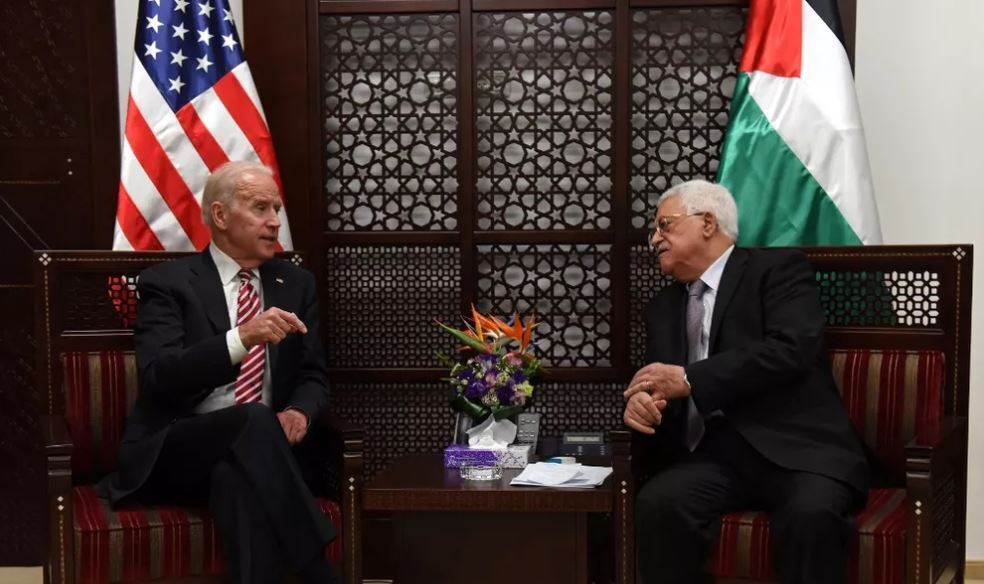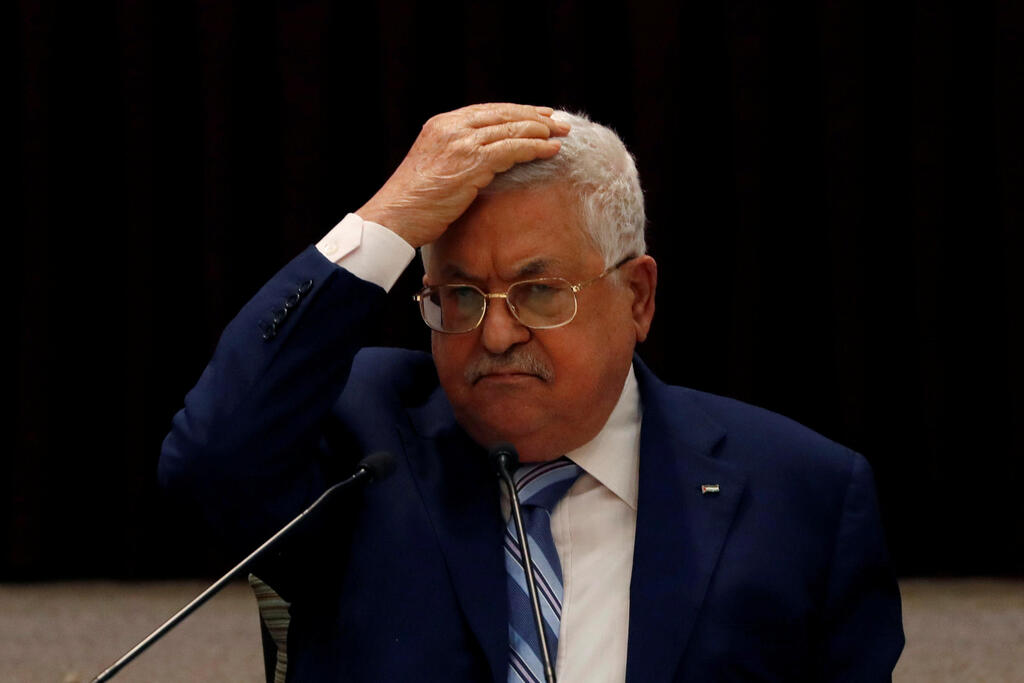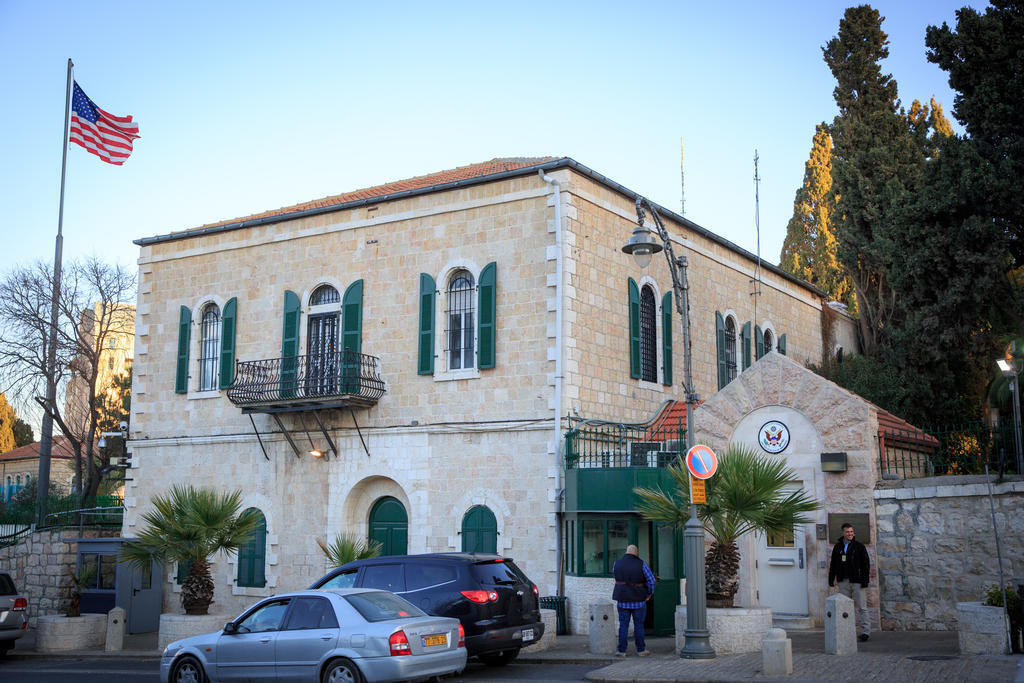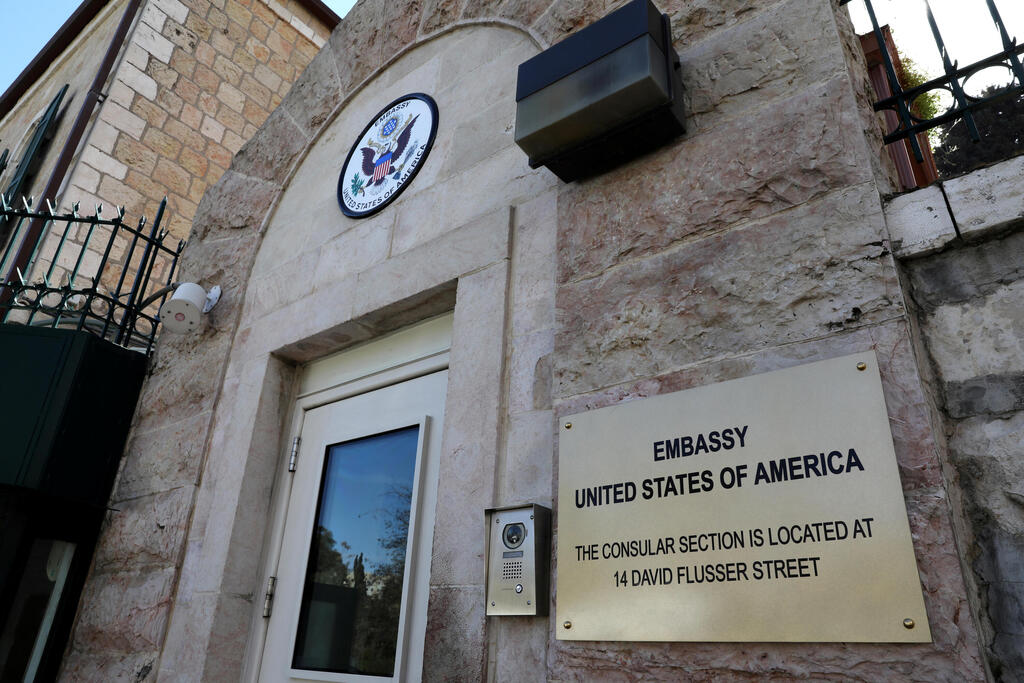Frustrated Palestinian officials say American promises to the Palestinian Authority (PA) are just a “mirage,” and that the United States’ policy toward Ramallah under President Joe Biden is no different than it was under his predecessor, Donald Trump, describing the contrast as a “cosmetic change.”
A Palestinian official close to PA President Mahmoud Abbas said that the 86-year leader is “outraged” at the slow pace of U.S. policy toward the Palestinians. Privately, officials in Ramallah have accused Washington of stalling and misleading them.
“Everything that they promised evaporated, they didn’t follow through on any of their pledges,” said the official.
Biden still refuses to meet with Abbas, according to sources in Ramallah, who said that Abbas canceled his trip to the United Nations General Assembly in September, because of efforts by the PA to secure a meeting for Abbas with Biden failed.
The two spoke once by phone last May, following the 11-day cross-border conflict between Israel and Gaza, and there is an official communication channel open between the two. Meanwhile, American officials are visiting Ramallah again.
Abbas became furious at the Biden administration in a meeting with Palestinian leadership last month, lashing out against U.S. officials, calling them “liars for not keeping the promises they made to us.”
Those promises include reopening the Palestine Liberation Organization office in Washington, providing financial support to the PA, and reopening the U.S. consulate in Jerusalem.
Recently, Palestinian Authority Prime Minister Mohammad Shtayyeh, a member of the Central Committee of the Fatah movement headed by Abbas, said that “the current U.S. administration does not have any initiative for peace.”
The Palestinians were counting on renewed U.S. support, both politically and financially.
Ahmad Rafiq Awad, president of the Center for Jerusalem Studies at Al-Quds University, said that there is a general feeling among Palestinian leadership that the U.S. administration has let them down.
“They feel frustrated and disappointed because there are hardly any tangible steps on the ground taken by the U.S.,” according to Rafiq Awad.
The PLO office remains shuttered with barely a trickle of financial aid and, despite the U.S. pledge to reopen its consulate in Jerusalem, no date for such a move has been set.
“The Palestinians were beaming when Biden won the White House, they had high expectations for him. They need to come down because the reality is Biden can’t seem to be able to pressure the Israeli government,” he said.
Hasan Awwad, an expert on Palestinian affairs at the University of Bridgeport in Connecticut, said that the PA is living in “isolation” and is so weak that it cannot make any political demands on anyone, including the U.S.
“These are difficult times for the PA and Abbas, almost no one is cooperating with him. Not the EU, and not the Arabs. Abbas is in trouble,” according to Awwad.
During a news conference on Saturday night, Israeli officials shut down any U.S. plans to reopen its consulate in Jerusalem.
Prime Minister Naftali Bennett told reporters the disputed city is the “capital of one state,” and that there’s “no room” for the U.S. consulate for the Palestinians in Jerusalem.
Foreign Minister Yair Lapid, standing next to Bennett, suggested that a site in the West Bank is acceptable to the Israelis.
“As for the consulate, as we both said, it is not about politics and political stability. It is the State of Israel refusing in principle that a consulate is opened in Jerusalem. If they (the United States) want to open a consulate in Ramallah, we have no problem with that,” he said.
These comments enraged PA officials, who have welcomed the administration’s plan; they swiftly rebuffed the Israeli government’s latest stance. Abbas’ spokesman said the PA will only accept a U.S. consulate in Jerusalem, which he called the capital of the Palestinian state.
U.S. officials have been on record as saying they want to go forward with their plans to open the consulate; however, Israeli officials insist the decision to allow the diplomatic mission is Israel’s.
Former Palestinian Authority minister Ziad AbuZayyad said that the White House is attempting to repair the damage done by its previous occupants.
“The Biden administration is trying to reverse all the stupid decisions taken by the Trump administration, including the (Iran) nuclear agreement, moving the embassy to Jerusalem, and recognizing Jerusalem as the capital of Israel,” he said.
Reopening the diplomatic mission in Jerusalem that was closed by Trump was a Biden campaign pledge, that he so far has not fulfilled. Professor Ronnie Shaked of the Hebrew University’s Harry S. Truman Research Institute says a crisis between the two allies may be brewing.
“It’s going to be a crisis. Yes, there will be a crisis on the way. There will be some kind of pressure. The American president understands the situation in Israel, and he will delay his decision,” Shaked said.
It was a move that delighted the Israeli administration and outraged Palestinians. “This decision is undermining any possibility of a political solution to the conflict; therefore, the United States is required and demanded to reverse this decision and to reopen an American embassy in east Jerusalem to deal with the Palestinians,” AbuZayyad said.
The U.S. administration has held off on pushing the issue of the consulate, awaiting approval of the Israeli budget – which passed late last week, thus avoiding the automatic dissolution of the government that failure to pass it would have triggered. Now that it’s out of the way and the fragile government coalition seems safe, all eyes are on the White House awaiting a possible announcement.





